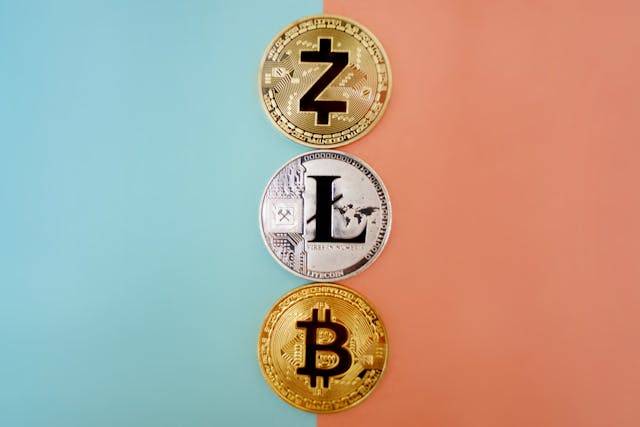Introduction: What is Blockchain, and Why Should You Care?
When most people hear about blockchain, the first thing that comes to mind is cryptocurrencies, like Bitcoin and Ethereum. And for good reason—blockchain is the technology that makes these digital currencies possible. But blockchain is so much more than just the backbone of cryptocurrency. It’s a game-changing technology that has the potential to revolutionize many industries beyond finance.
In this blog, we’ll explore the real-world applications of blockchain technology and how it’s already being used to transform industries from supply chain management to healthcare and voting systems.
1. Blockchain in Supply Chain Management: Transparency and Efficiency
When you buy a product—whether it’s a smartphone, a piece of clothing, or fresh produce—do you know where it came from, how it was made, or the journey it took to reach you? With blockchain, that transparency becomes a reality. Blockchain allows for the secure, transparent tracking of goods as they move through every step of the supply chain, ensuring that both consumers and businesses have access to accurate and real-time data.
-
Key features: Immutable records, real-time updates, and secure data sharing.
-
Why it matters: For businesses, blockchain reduces the risk of fraud, improves inventory management, and streamlines operations. For consumers, it guarantees that products are ethically sourced, free from counterfeiting, and of high quality.
Example: Companies like Walmart and IBM are already using blockchain to trace the origins of food products, ensuring that everything from farm to fork is tracked, providing consumers with trustworthy information about what they’re buying.
2. Blockchain in Healthcare: Improving Data Security and Accessibility
Healthcare is another area where blockchain technology is showing incredible potential. With sensitive patient data being transferred between hospitals, doctors, and insurance providers, the need for secure and accessible systems has never been greater. Blockchain offers a solution by providing a decentralized and encrypted platform to store and transfer medical records.
-
Key features: Immutability, enhanced data security, and interoperability.
-
Why it matters: Blockchain ensures that patient data is protected from hacks and breaches, while also making it easier for healthcare professionals to access accurate, up-to-date information. Additionally, patients can have more control over their own medical records, granting access only to authorized parties.
Example: MedRec, a blockchain-based system developed by researchers at MIT, is designed to create a secure, shareable electronic health record system that gives patients more control over their healthcare information.
3. Blockchain in Voting Systems: A More Secure Democracy
The integrity of voting systems is critical to the functioning of any democracy, but traditional systems are often vulnerable to fraud, manipulation, and errors. Blockchain technology is being explored as a way to create a more secure, transparent, and efficient voting process.
-
Key features: Decentralized, tamper-proof, and transparent.
-
Why it matters: Blockchain could make voting more accessible by allowing remote voting, while ensuring that each vote is immutable and cannot be altered or deleted. This would reduce the risk of voter fraud and ensure that election results are accurate and trustworthy.
Example: Countries like Estonia have already implemented blockchain in their e-government systems, and projects like Voatz are exploring the use of blockchain for mobile voting in local elections, ensuring transparency and security in the process.
4. Blockchain in Real Estate: Simplifying Transactions and Reducing Fraud
The real estate industry is notorious for its complexity, with countless intermediaries, mountains of paperwork, and a high risk of fraud. Blockchain can streamline this process by making real estate transactions faster, more transparent, and more secure.
-
Key features: Smart contracts, digital property records, and transparent ownership.
-
Why it matters: Blockchain can eliminate the need for third parties, like title companies or notaries, to verify property transactions, reducing costs and paperwork. Additionally, it can provide a transparent record of property ownership, which can be accessed by anyone, ensuring trust in the transaction.
Example: In Dubai, the government is already using blockchain to store property titles, while platforms like Propy are experimenting with blockchain to enable international real estate transactions without the need for intermediaries.
5. Blockchain in Finance (Beyond Cryptocurrencies): Revolutionizing Payments and Banking
While cryptocurrencies are the most well-known use case for blockchain, the financial sector is using blockchain for much more than just Bitcoin. Blockchain is being explored as a solution for faster, cheaper, and more secure transactions across the financial industry.
-
Key features: Instant settlement, reduced transaction fees, and enhanced security.
-
Why it matters: Blockchain allows for peer-to-peer transactions, reducing the need for intermediaries (like banks) and dramatically lowering transaction fees. Cross-border payments, which typically take days to process, could be completed in seconds, benefiting both businesses and consumers.
Example: Ripple, a blockchain-based payment platform, is already transforming cross-border payments, enabling instant transfers with lower fees. JP Morgan and other big banks are also exploring blockchain for interbank settlements.
6. Blockchain in Intellectual Property Protection: Securing Creators’ Rights
For artists, musicians, and creators in all fields, protecting intellectual property (IP) is critical. Blockchain technology can be used to securely record intellectual property rights, ensuring that creators receive proper credit and payment for their work.
-
Key features: Transparent records of ownership, smart contracts, and automatic royalty distribution.
-
Why it matters: Blockchain eliminates the risk of IP theft or disputes by providing an immutable record of ownership. Smart contracts can also automatically distribute royalties when a piece of intellectual property is used, ensuring fair compensation for creators.
Example: The platform Ascribe allows digital artists to register their work on the blockchain, providing a secure and transparent way to track ownership and licensing agreements.
7. Blockchain in Energy: Creating a Decentralized, Sustainable Grid
The energy industry is ripe for disruption, and blockchain could be the key to creating a more sustainable and efficient energy grid. By using blockchain, energy consumers and producers could participate in a peer-to-peer energy trading system, where surplus energy is sold directly to others.
-
Key features: Decentralized energy trading, transparent pricing, and smart contracts.
-
Why it matters: Blockchain technology could enable solar energy producers to sell excess energy directly to consumers, cutting out the middlemen (like energy companies) and lowering costs. It could also enable more efficient use of renewable energy sources by optimizing grid management.
Example: Platforms like Power Ledger are already using blockchain to enable peer-to-peer energy trading, allowing homeowners with solar panels to sell their excess energy directly to their neighbors.
Conclusion: The Future of Blockchain is Bright
Blockchain technology is far more than just the foundation of cryptocurrencies; it’s a transformative tool that has the potential to revolutionize industries from supply chain management and healthcare to voting systems and intellectual property protection. While its widespread adoption is still in its early stages, the promise of security, transparency, and efficiency is clear.
As more industries begin to recognize the potential of blockchain, we can expect to see more innovative applications emerge in the years to come. Whether you’re a business owner, a consumer, or a technophile, it’s clear that blockchain is a technology that will shape our future in ways we’ve only begun to understand.





